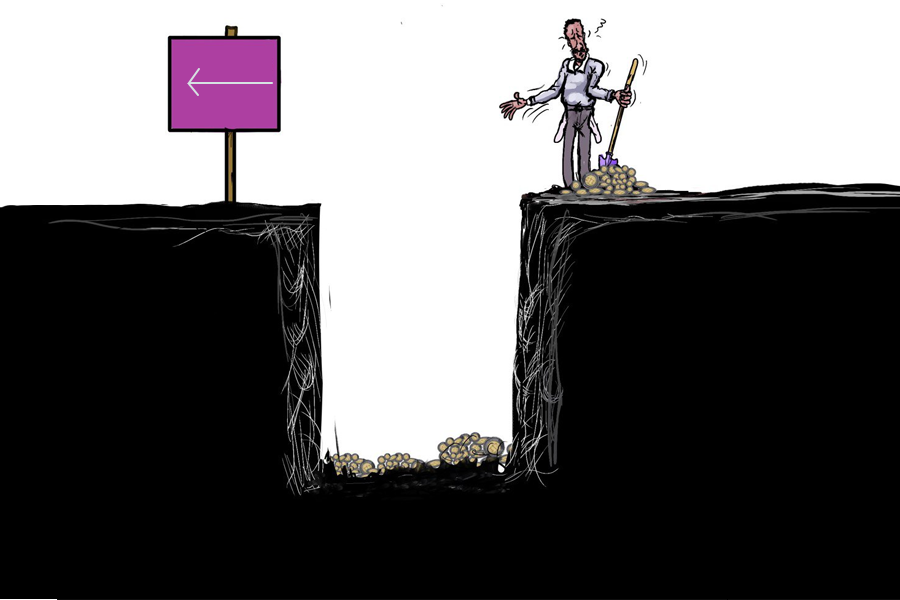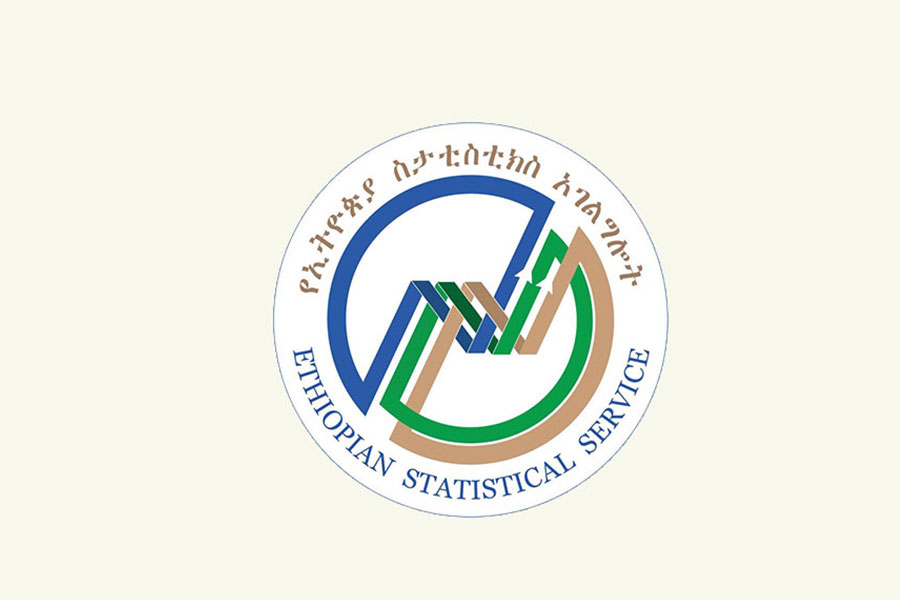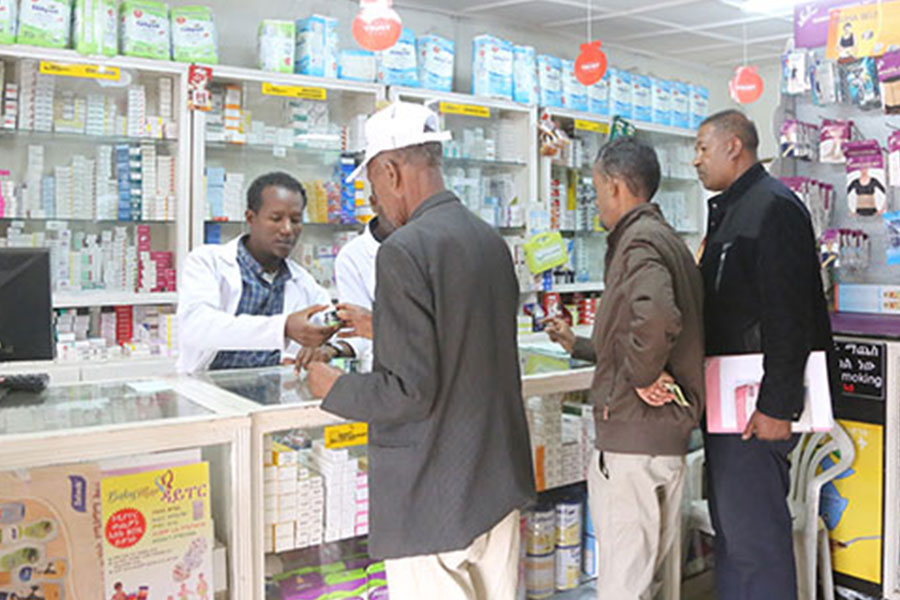
Editorial | Mar 18,2023
Feb 6 , 2021
By FASIKA TADESSE ( FORTUNE STAFF WRITER )
Ethiopia’s pace of inflation, the average change in the price for a basket of goods and services that consumers purchase, grew by one percentage point in January to 19.2pc, far higher than the government's single-digit target.
The latest consumer price index (CPI) from the Central Statistical Agency (CSA) indicated that both food and non-food items had shown a rise in price. The survey indicated that food inflation stands at 23.1pc, a 1.8-percentage-point rise from the previous month.
Most cereal prices showed an increase, contributing greatly to the rise in food inflation, while vegetables and some pulse types also registered an increase in their prices, according to the report from the Agency.
"The continued rise in the prices of sugar, edible oil, spices, potatoes and coffee has contributed to an increase in the rate of inflation," reads the report.
There is a huge rift from the supply side of food items, according to Getachew Asfaw, an economist who has published four books on the macroeconomic conditions of the country.
"There is a severe supply shortage," he said, "and there is enormous wastage during production."
Non-food inflation came in at 14.5pc, a slight 0.2-percentage-point decrease from the rate registered in December although it increased by 14.5pc in January 2021 compared to the rate observed in January 2020.
The rise in non-food inflation is mainly due to a rise in the prices of alcohol and tobacco, khat, housing repair and maintenance, firewood and charcoal, medical care, and gold, according to the report. Last month the Ministry of Trade & Industry made a price amendment to the retail price of fuel. The price of benzene was increased by almost two Birr a litre, while diesel prices exhibited an increase of 0.3 Br a litre.
The month-on-month general CPI for January, which measures the price change between the two most recent months, has shown an increase of 1.6pc compared to December.
The income of people is also fluctuating since many people engage in informal business, which is known for seasonal income, according to Getachew.
"There is macroeconomic instability," said Getachew, "and the government is not addressing it, possibly because it's swamped by the political situation in the country."
January's rate is higher than the 14.4pc average rate that was recorded over the past decade. Last month's rate stood slightly lower than last fiscal year's average inflation rate, which came in at 19.9pc. For the current fiscal year, the government targets to confine the rate to the single digits at 9.5pc.
"Macroeconomic management alone doesn't address this issue, which is deep-rooted," said Getachew. "It needs deep research and investigation. This is a time when we all need to sit and discuss the issue."
Inflation, the foreign currency crunch and unemployment have become rampant and need more special attention than in the usual days, according to Getachew.
Two months ago the government formed a 16-member economic advisory council that is expected to be a regular source of independent, objective and evidence-based advice on economic policy.
The recently approved 10-Year Perspective Plan also targets to confine the inflation rate to 7.2pc in the coming decade through fiscal and monetary policies.
Balancing demand and supply, covering the budget deficit from the sale of treasury bills (T-Bill) both in the primary and secondary markets and limiting the broad money supply and base money supply to an annual growth rate of 21pc and 19pc, respectively, are among the tools that the government plans to apply to keep inflationary pressure in the single digits.
"The Plan will help better guide us in enhancing productivity," said President Sahle-Work Zewde during an event held at UN-ECA to discuss the Plan with foreign diplomats sitting in Addis Abeba.
Enhancing productivity will help the country maintain stable inflation, reduce poverty and ensure food security, according to President Sahle-Work.
PUBLISHED ON
Feb 06,2021 [ VOL
21 , NO
1084]

Editorial | Mar 18,2023

Radar | Jun 21,2025

Fortune News | Mar 30,2022

Fortune News | Nov 24,2024

Radar | Nov 13,2021

Dec 22 , 2024 . By TIZITA SHEWAFERAW
Charged with transforming colossal state-owned enterprises into modern and competitiv...

Aug 18 , 2024 . By AKSAH ITALO
Although predictable Yonas Zerihun's job in the ride-hailing service is not immune to...

Jul 28 , 2024 . By TIZITA SHEWAFERAW
Unhabitual, perhaps too many, Samuel Gebreyohannes, 38, used to occasionally enjoy a couple of beers at breakfast. However, he recently swit...

Jul 13 , 2024 . By AKSAH ITALO
Investors who rely on tractors, trucks, and field vehicles for commuting, transporting commodities, and f...

Oct 25 , 2025
The regulatory machinery is on overdrive. In only two years, no fewer than 35 new pro...

Oct 18 , 2025
The political establishment, notably the ruling party and its top brass, has become p...

Oct 11 , 2025
Ladislas Farago, a roving Associated Press (AP) correspondent, arrived in Ethiopia in...

Oct 4 , 2025
Eyob Tekalegn (PhD) had been in the Governor's chair for only weeks when, on Septembe...